As the cycles of the heavens turn and the stars drift across the firmament, humanity has long sought to map the infinite constellations, weaving mythologies to anchor its existence within the cosmos. But, from the celestial vantage point, has the human endeavor ever truly registered? The presentation at Nan Ke Gallery during the Taipei Contemporary Art Fair in May is artist Zhou Meng’s profound meditation on this very inquiry.
Dominating the center of the booth was a comprehensive mural, Star Chart, which, like a mystical portal, opened a gateway to a celestial map within the confines of modern architecture. The expansive mural, evoking the primordial atmosphere of ancient cave paintings, was imbued with a sense of timelessness, as if it were a relic left by early humans in their quest to decipher the stars. Embedded within the mural were eighty-eight meteorite fragments, representing the constellations, using material that originated from the very cosmos they depict, thus completing the narrative both logically and aesthetically.
A recurring theme in Zhou Meng’s work is a deep-seated humility towards nature. This year, his exploration extends further, traversing multidimensional coordinates—ranging from the primordial wilderness to conceptual futures. Zhou navigates through “time,” spanning from the slumbering earth of fossils to the starry expanses of the galaxy, like a bard who collects, expresses, and sings the tales of existence.
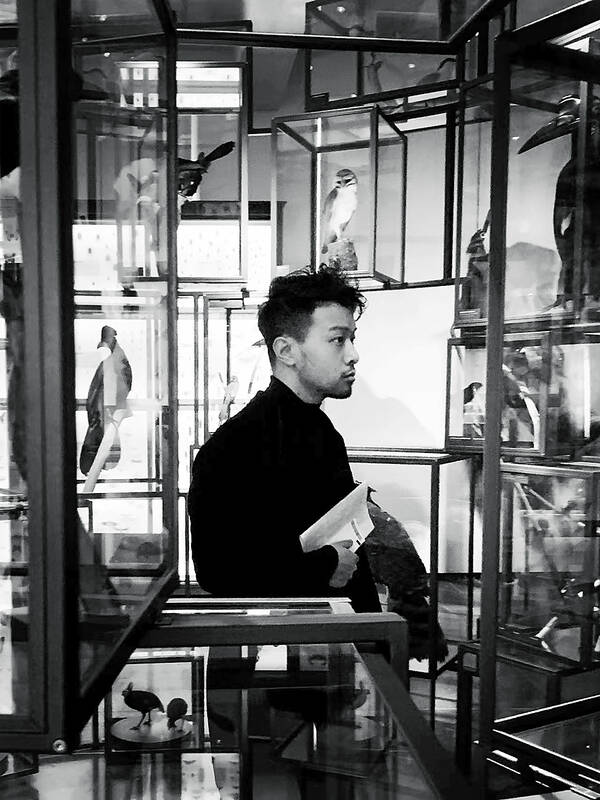
The Fading Lore series on paper illustrates the lingering shadows of forgotten deities, their forms evoked through traditional Chinese ink techniques, capturing the transient guardianship and overarching dominion that pervade all. These divine figures, repeated like ancient symbols, ascend to a grand metaphor that transcends time and space, reigning over humanity across epochs and cultures.
The relationship between humanity and nature, long depicted in traditional Chinese cosmology through the dynamic interplay of yin and yang, here calls for a renewed awareness of human insignificance, urging a posture of humility before the natural world. As Daoist philosophy teaches, “Heaven and Earth are not benevolent; they treat all things as straw dogs.” The gods of nature, devoid of conventional compassion, exist as a force to which humanity can only respond with reverence.
Following the Taipei fair, Nan Ke Gallery continued to showcase Zhou Meng’s evolving thought process at Tokyo Gendai in July, where his focus expanded from the divine and natural realms to a keen interest in anthropology. Here, human behavior became a fascinating subject of observation and analysis.
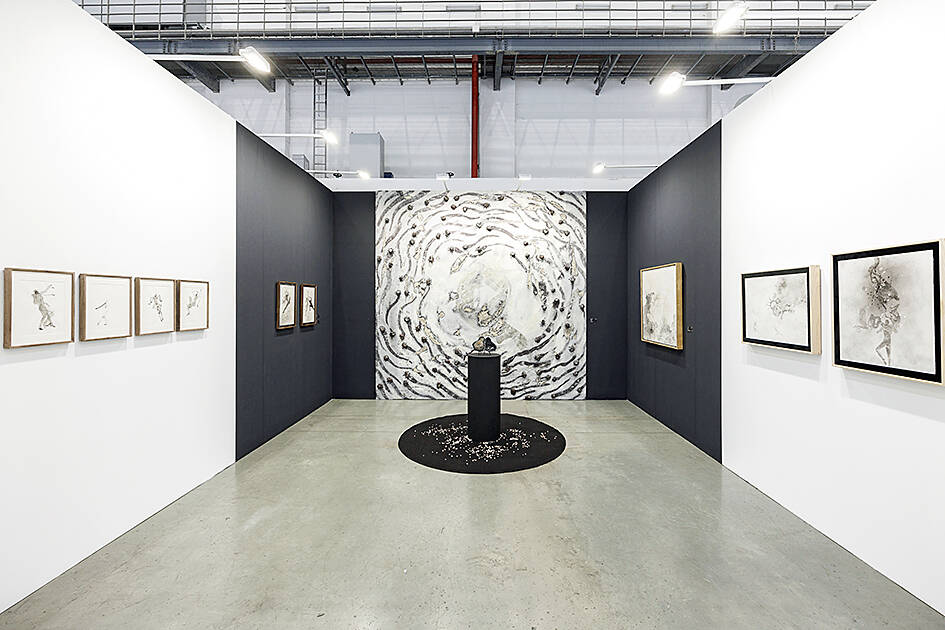
At the center of the exhibit stood the large-scale sculpture Mount Top, hinting at the origin of time and initiating a dialogue with nature. The mythical “Buzhou Mountain” from the Classic of Mountains and Seas, symbolizing the boundary between the divine and the mortal, intersected with the Western narrative of the Tower of Babel, creating a transcultural resonance. Beneath this sculpture, the mural transitioned into another dimension, opening a gateway to the heavens on the floor, blurring the physical limits of space and immersing the viewer in a transcendental experience. Time and space fold into one another, conveying an ancient call of naturalism while simultaneously fostering a deep, timeless empathy beyond the confines of reality.
Connecting to the continuum of human history, Zhou Meng’s Hero Game series juxtaposes prehistoric weapons with the modern game of “rock, paper, scissors,” offering a satirical commentary on warfare. The grandiosity and peril of war are reductively portrayed as mere human play, reinstating humanity’s humble place within the natural order. The absurdity of modern warfare, fueled by power struggles, is likened to the frivolity of entertainment culture.
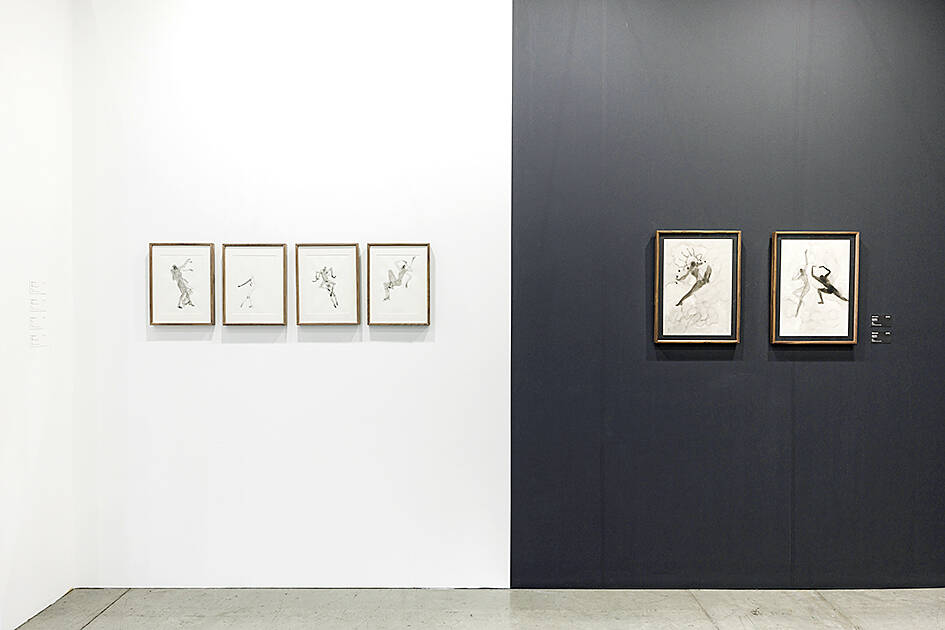
This anthropological exploration will continue in Zhou Meng’s upcoming solo exhibition,II Trovatore (The Troubadour), opening on September 13 in Munich, Germany, co-presented by the Blue Mountain Contemporary Art Foundation and Nan Ke Gallery. Here, Zhou refines his macro-philosophical inquiries into a narrative realm, using the troubadour as a central figure to weave together a global story. The exhibition simulates the structure of a poem, with natural spaces divided into chapters, allowing artworks, the artist, and the viewers to traverse and resonate with the unfolding saga.
Incorporating diverse materials imbues the exhibition with an innate sense of collection and exploration. Zhou Meng integrates his cherished artifacts, such as Madagascar raffia and ancient ceramic statues, into the narrative. Nature’s creations envelop human artifacts, re-nurturing them as fruits that connect disparate civilizations and propel them towards an unknown horizon.
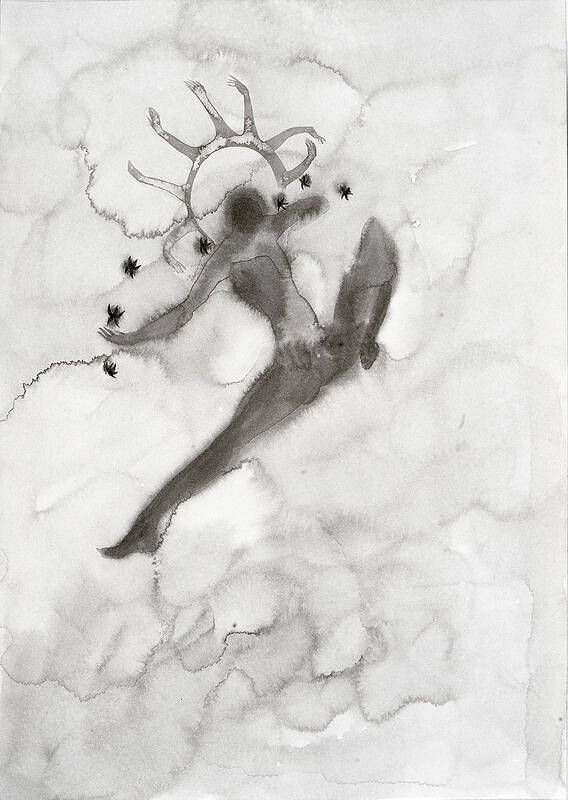
Seeds from different eras and regions converge here, growing into the river of life that envelops varied lands, linking human civilizations and their stories. As time flows, lives faded and become stones, passing through eons and transfering into shells on the shore. These shells, repurposed as currency in a new cultural context, embark on another cycle of circulation and rebirth. All things in the universe engage in this alternation and cycle, with the troubadour as the romantic thread tying together the complete narrative.
This October, Zhou Meng’s creative journey will once again take him to Taipei for a group exhibition presented by YIYUN ART at ART TAIPEI (Booth E04). In a migration full of possibilities and imaginations, the bard continuously collects the time fragments of the land, sings them, and then progresses and echoes them in the space.
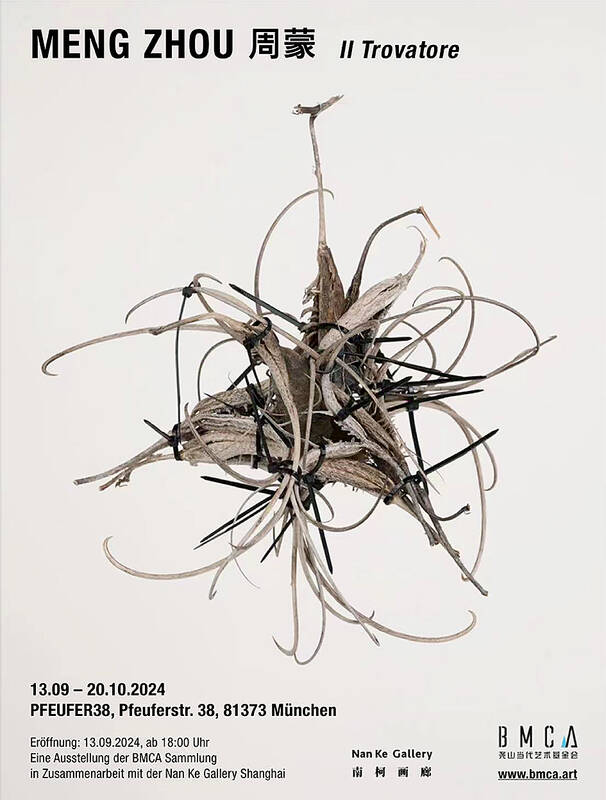
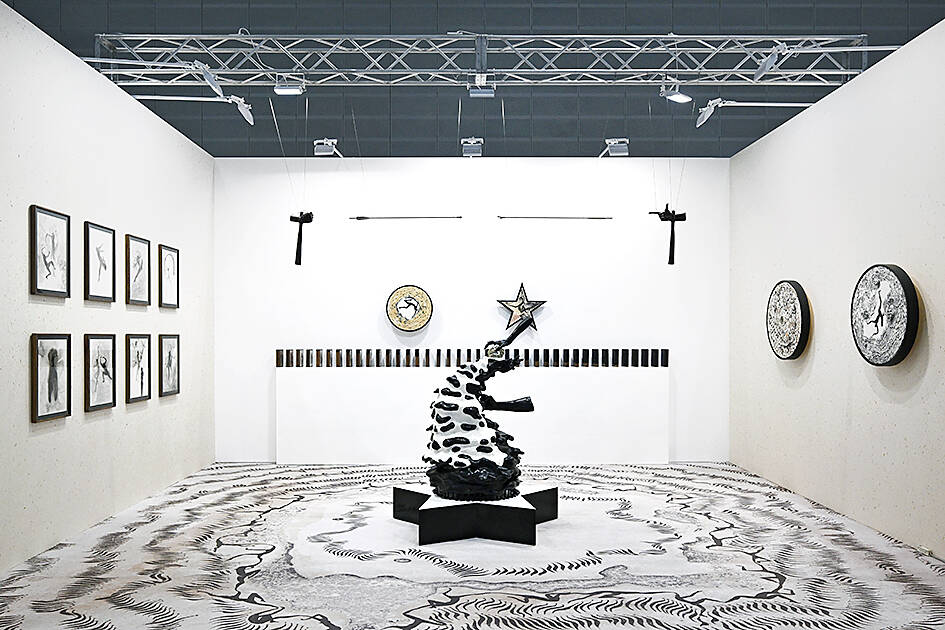

Yemen’s separatist leader has vowed to keep working for an independent state in the country’s south, in his first social media post since he disappeared earlier this month after his group briefly seized swathes of territory. Aidarous al-Zubaidi’s United Arab Emirates (UAE)-backed Southern Transitional Council (STC) forces last month captured two Yemeni provinces in an offensive that was rolled back by Saudi strikes and Riyadh’s allied forces on the ground. Al-Zubaidi then disappeared after he failed to board a flight to Riyadh for talks earlier this month, with Saudi Arabia accusing him of fleeing to Abu Dhabi, while supporters insisted he was

‘SHOCK TACTIC’: The dismissal of Yang mirrors past cases such as Jang Song-thaek, Kim’s uncle, who was executed after being accused of plotting to overthrow his nephew North Korean leader Kim Jong-un has fired his vice premier, compared him to a goat and railed against “incompetent” officials, state media reported yesterday, in a rare and very public broadside against apparatchiks at the opening of a critical factory. Vice Premier Yang Sung-ho was sacked “on the spot,” the state-run Korean Central News Agency said, in a speech in which Kim attacked “irresponsible, rude and incompetent leading officials.” “Please, comrade vice premier, resign by yourself when you can do it on your own before it is too late,” Kim reportedly said. “He is ineligible for an important duty. Put simply, it was

The Chinese Embassy in Manila yesterday said it has filed a diplomatic protest against a Philippine Coast Guard spokesman over a social media post that included cartoonish images of Chinese President Xi Jinping (習近平). Philippine Coast Guard spokesman Jay Tarriela and an embassy official had been trading barbs since last week over issues concerning the disputed South China Sea. The crucial waterway, which Beijing claims historic rights to despite an international ruling that its assertion has no legal basis, has been the site of repeated clashes between Chinese and Philippine vessels. Tarriela’s Facebook post on Wednesday included a photo of him giving a

Syrian President Ahmed al-Sharaa on Sunday announced a deal with the chief of Kurdish-led forces that includes a ceasefire, after government troops advanced across Kurdish-held areas of the country’s north and east. Syrian Kurdish leader Mazloum Abdi said he had agreed to the deal to avoid a broader war. He made the decision after deadly clashes in the Syrian city of Raqa on Sunday between Kurdish-led forces and local fighters loyal to Damascus, and fighting this month between the Kurds and government forces. The agreement would also see the Kurdish administration and forces integrate into the state after months of stalled negotiations on